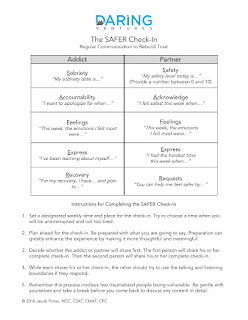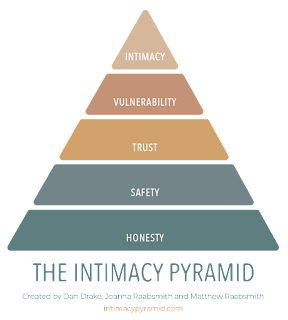Should I Go Through His Phone?
I scoured Covenant Eyes reports, analyzed text messages, noted YouTube recommendations, and watch him out of the corner of my eye every time we walked past a woman in public. I needed to know what was going on. I needed to feel safe.
I didn't like invading his privacy, sneaking around trying to catch him in his acting out, or even hoping to find evidence of his problematic sexual behaviors, but it felt worse not knowing. I couldn't stand it.
I found things from to time, but he always had an explanation. Sometimes the evidence was overwhelming, cut and dry, but I never left a conversation about said evidence without some kind of doubt in my mind. I wanted to believe he wasn't doing what he was doing. I wanted to trust him.
Information is vital to the power balance of a relationship and to our ability to trust each other. One partner withholding information that impacts or could impact the other makes the relationship unsafe. It is NORMAL to try to find safety by seeking out information, especially after betrayal.
It is HOW we get the information that can either cause a pain that leads to more pain or a pain that leads to healing. Clients often wonder if or how they should try to find out the truth of about their partner's sexual acting out. Most are having many conversations with their partner asking question after question. Yet with the habitual deception involved in hiding problematic sexual behavior, 70% of partners in a study reported that at least one additional disclosure was made after initial disclosure, even if the partner was told they now knew everything.
Unfortunately, each time new information is revealed, it magnifies the trauma caused to the partner after the initial discovery of the addiction. Not only that, but being able to fully process what you are hearing in the midst of an unplanned disclosure is very difficult. You are likely to revisit the information repeatedly for an indeterminate amount of time.
There is a better way, a way that can lead to healing for both the betrayed partner and the discloser. In fact, 90.5% of couples believe they benefitted from participating, and 81% believed the personal and relationship benefits far outweighed the harm of hearing/sharing the painful information. Those are really good odds!
This "better way" is a professionally-guided Full Disclosure. If you want to stop searching, pleading, scouring and questioning, consider a Full Disclosure. You can create a space where the whole truth can be revealed with the least traumatic impact, that truth can be part of ongoing recovery for both of you, and you can have the comfort of a polygraph confirming truth instead of acting as a human polygraph.
If you would like to learn more about Full Disclosure, follow this link.




Comments
Post a Comment